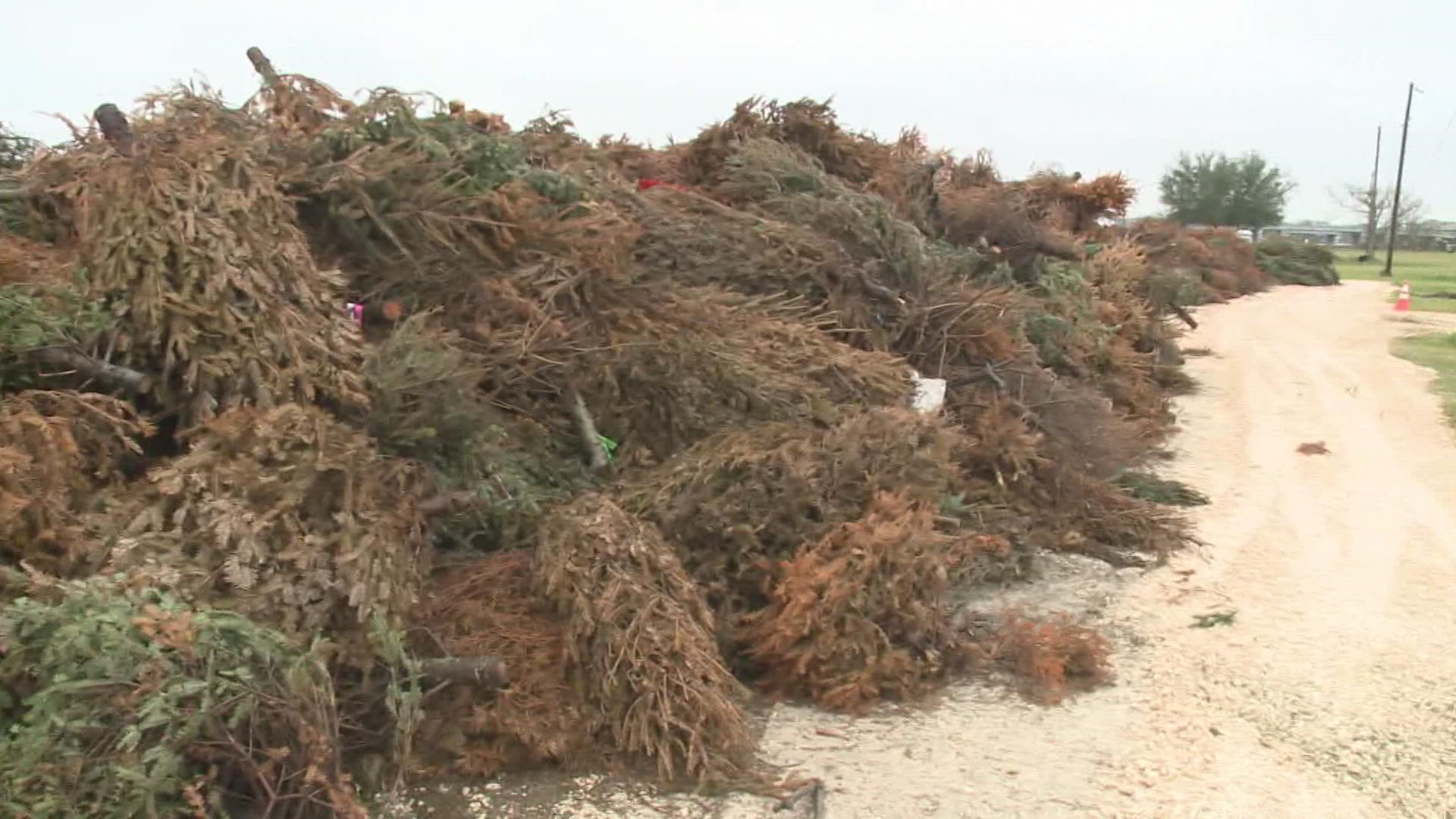NEW ORLEANS — Piles of debris still sit on sidewalks more than a month after Hurricane Ida. Residents have been advised to bring debris to landfills and any debris that FEMA picks up also goes to landfills
Environmentalist say there are more eco-friendly options that could help protect us during future hurricanes.
"Just think of the horrible situation if we had, for five years in a row we had storms like this," said Dr. Robert Thomas, Loyola University Center for Environmental Communication.
In many parishes throughout the state, FEMA is now helping with the cleanup and the government organization is mandated to put any debris they pick up in a landfill.
"It's the low hanging fruit, it's the easy thing to do," Dr. Thomas said.
"It makes sense for people in government positions like that to just think of that has a solution, it's what they done the last five or ten disaster that they've had," he said.
But the amount is concerning environmentalist.
"There's only so much space land filling and it's at a premium," Dr. Thomas said.
According to Dr. Thomas, once the landfill is full debris will have to go elsewhere. But, instead of letting debris pile up in streets before shipping it to other states, Dr. Thomas says there's another solution: use it.
"Put somewhere where its actually contributing to costal restoration," he said.
In 1987, Dr. Thomas and a group of environmentalists came up with the Christmas Tree Project. The team collected ten thousand used Christmas trees to restore marshland in Louisiana.
"It would be interesting to see if we could ever figure out how much landfill space we've saved. It's an enormous size," Dr. Thomas said.
Using only organic materials, like Christmas trees or debris from hurricanes, the idea is to slow the motion of the water and settle soil floating in the water to get shallower water systems along the coast.
"Then vegetation can grow in that and hold it together," said Dr. Thomas.
But environmentalists can't make this happen alone.
"Somebody, some leader needs to say 'enough is enough and too much is too much we will devise a plan for the next time there's a major catastrophe along the coast' because we know it's going to happen," Dr. Roberts said.

